Attitudes and Persuasion Lab

Our research focuses broadly on the situational and individual difference factors responsible for changes in beliefs, attitudes, and behaviors. Much of our current work is aimed at examining the implications of the Elaboration Likelihood Model of persuasion and the Meta-Cognitive Model of attitude structure for understanding prejudice, consumer choices, political and legal decisions, and health behaviors. Topics of special current interest include: understanding the role of meta-cognitive (e.g., confidence/certainty) as well as implicit (automatic or unconscious) factors in persuasion, resistance to change, and advocacy; the effect of racial and ethnic prejudice, stereotypes, and specific emotions on social judgment and behavior; and investigating how people correct their evaluations for various factors they think may have biased their judgments (such as stereotypes they hold or emotions they are experiencing).
Faculty:
Attitudes and Social Cognition Lab
Our research investigates basic social psychological phenomena like attitude formation, attitude change, and the relationship between attitudes and behavior, as well as the automatic and controlled cognitive processes that guide our social behavior. We Study these phenomena as they apply to racial prejudice, approaching novel objects, and emotional disorders, just to name a few.
Faculty:
Buckeye Brain Aging Lab (The B-Bal)
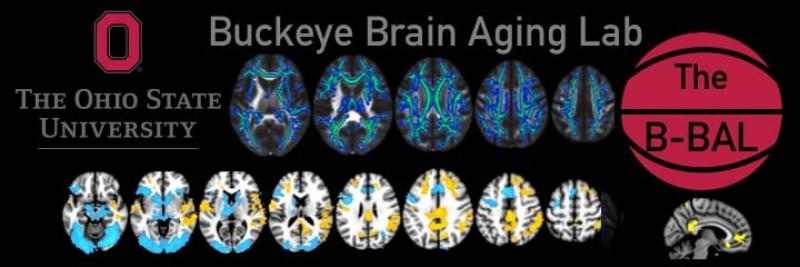
The B-BAL, directed by Dr. Scott M. Hayes, works with healthy young and older adults, as well as individuals with mild cognitive impairment (MCI), neurodegenerative disease, medial temporal lobe amnesia, and traumatic brain injury (TBI). One of the research themes of the B-BAL is to examine variables that attenuate age-related cognitive and neural decline and contribute to successful aging. We work with sedentary adults as well as masters level athletes. Using neuroimaging techniques including structural and functional Magnetic Resonance Imaging (fMRI), the B-BAL focuses on:
- Studying the relationships between physical activity, fitness, cognition and the brain
- Examining the neural correlates of cognition, with an emphasis in memory
- Applying advanced MRI techniques to clinical populations with memory impairments
Faculty:
Cardiopulmonary Behavioral Medicine Lab
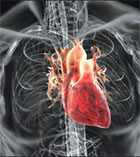
We are currently conducting several different research studies addressing psychological adaptation to chronic illness, psychological and cognitive outcomes of physical exercise, emotional regulation and health outcomes, and health promotion among young adults and older adults.
Faculty:
Childhood Mood Disorders Lab

Our mission is to design and implement high-quality research, which can be translated into effective clinical assessment tools and interventions to improve the lives of children with mood disorders and their families.
Faculty:
Cognitive and Affective Influences in Decision Making (CAIDe) Lab
The Cognitive and Affective Influences in Decision making (CAIDe) Lab focuses on the affective and cognitive mechanisms that underlie decision making. We are currently particularly interested in numeric competencies and the processing of numeric and non-numeric sources of information, as well as the role of attention in judgment and choice. Although we often conduct hypothetical studies in the lab, we also get out in the "real world" and study the generalizability of our theories to health, environmental, and economic judgments and decisions.
Cognition and Language Lab
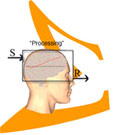
Our lab addresses a number of topics in experimental psychology and cognitive modeling. These include verb representation, inferences in reading, word processing, memory, response time modeling, aging effects in memory and speed of processing, and neural decision making. The web page has demonstrations, papers that can be downloaded, and online experiments that can be performed.
Faculty:
Cognitive Development Lab
Our research focuses on the development of higher-order cognition, including categorization, reasoning, and problem solving, and interrelationships between cognition and language. Our goal is to understand the mechanisms of knowledge representation and changes in these mechanisms in the course of learning and cognitive development.
We examine these mechanisms in both knowledge-rich domains, such as mathematics and science, and in knowledge-lean domains, such as object spatial arrangements. Our current projects focus on the development of induction in young children, the development of mathematical reasoning, representation of propositions and deductive arguments, and problem representation in experts and novices.
Faculty:
Cognitive Modeling and Computational Cognitive Neuroscience Lab
Our research focuses on the interface between visual perception and decision-making, with a special emphasis on learning. For example, consider a medical student learning to diagnose breast cancer on mammograms. At first, each mammogram appears as an undifferentiated blob similar to any other mammogram. With practice, however, the student learns to identify cancerous formations with high reliability. The question is, what has changed in the brain of the expert relative to that of a novice? How do these changes occur? In addition to their practical importance, questions such as these are of great theoretical interest.
Faculty:
Concepts and Learning Lab

At times, young children express bizarre beliefs that can take many years for them to overcome, such as the notion that plants are not alive, that styrofoam doesn't weigh anything at all, or that a cow can be an hour long. Where are children going wrong? Do they need to change their minds about life, weight, and time, or do they need to learn something specific about plants, styrofoam, and cows? This is one of the questions raised by the phenomenon of conceptual change.
Because our concepts play such a large role in shaping how we think, feel and behave, understanding how concepts change is an important issue in cognitive and developmental psychology, and it motivates the work we do at the Concepts and Learning Lab.
Faculty:
Developmental Cognitive Neuroscience Lab (Z-Lab)

We investigate the structural and functional architecture of the human brain, and how it develops and changes with experience.
Faculty:
Developmental Language & Cognition Lab (DLCL)
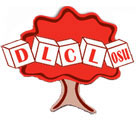
We study how children learn language, and how children’s early language development is connected to their early conceptual development.
Faculty:
Emotions and Quantitative Psychophysiology Lab
Research in the Emotions and Quantitative Psychophysiology Laboratory focuses on studying changes in physiology and how these relate to underlying emotional and behavioral changes as well as to the implications these changes can have on overall health. One physiological measure of particular interest in our lab is heart rate variability (HRV). Generally, heart rate variability is an index of cardiovascular flexibility in response to situational demand. We study how changes in HRV and other physiological parameters (i.e. blood pressure) relate to psychological processes and their implication in the development of health problems.
Faculty:
Language Perception Lab
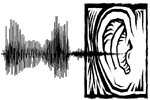
Research in our lab addresses the following question: How does the mind of a listener translates the acoustic energy emanating from a talker's mouth into the words intended by the talker?
Faculty:
Learning Disabilities Innovation Hub
Our research program examines the development of the cognitive processes related to language, reading, and mathematics from the behavioral genetic perspective. We use a wide range of studies and methods involving twin and adoption designs, molecular genetics, brain imaging, and eye-tracking approaches, as well as careful study of the environments associated with the development of language, reading, and math skills. In addition to research, we support mentorship opportunities for undergraduate students, graduate students, postdoctoral students, and visiting fellows.
Faculty:
Mood and Personality Studies Lab
The overarching aim of the MAPS lab is to conduct research that leads to improved outcomes for people with Mood and Personality Disorders by working to identify factors associated with severe emotion dysregulation as well as ways to optimize treatments and treatment delivery. We have three related lines of research. First, we study emotion dysregulation and emotion regulation strategies and how these transdiagnostic constructs are associated with psychopathology and functioning. Second, we study how to optimize treatments for people with mood and personality disorders, specifically depression and BPD. Third, we study personal strengths and processes that are associated with successful goal pursuits and emotional well-being, including hope, gratitude, and validation.
Faculty:
Motivation and Cognitive Science Lab
Welcome to the Motivation and Cognitive Science Laboratory website. We study how motivation (what we want) and cognition (how we think) interact to determine our evaluations, judgments, and behavioral decisions.
Self and Social Motivation Laboratory
We study interpersonal goals, particularly self-image goals and compassionate goals, and their correlates, antecedents, and consequences for learning, self-regulation, relationships, and mental and physical health.
Self-image goals focus on controlling how others view the self, whereas compassionate goals focus on responding to others’ needs. Research conducted in the self and social motivation lab examines how these goals shape intrapersonal processes such as cognition, emotions, beliefs, and physiology, and interpersonal processes such as support, responsiveness, and relationship quality. The laboratory is directed by Jennifer Crocker, Ph.D., and located in Lazenby Hall at the Ohio State University.
We study these processes using a wide range of research methods. Laboratory experiments investigate the effects of goals and related variables on cognitive processes such as working memory, emotions, and relationship processes. Longitudinal studies investigate the dynamic processes through which goals shape what people experience and how they behave, which affects what other people experience and how others behave, which then affects the self. Survey studies examine the relation of compassionate and self-image goals to other constructs.
This site is intended to provide useful information to students, researchers, and anyone interested in how interpersonal goals can foster or undermine well-being. If you would like information beyond what the website provides, feel free to contact the lab manager, Tao Jiang, or the PI, Jennifer Crocker, Ph.D.
Faculty:
Social Neurochemistry Lab
Welcome to the web page for the Social Neurochemistry Lab at the Ohio State University, which is headed by Baldwin Way. Our research is focused on the neurochemical processes by which social relationships impact health-related physiology. A particular focus is on the neurochemical underpinnings of reactivity to both positive and negative events and how the immune system can modulate this process.
Faculty:
Stereotyping and Prejudice Lab
Welcome to the Self, Stereotypes, and Social Norms Laboratory at The Ohio State University! Under the direction of Steve Spencer, we study processes related to the self, identity, and motivation, particularly how these processes affect stereotyping and prejudice.
Stress and Immunity Cancer Projects Lab
The Stress and Immunity Cancer Projects are a series of research programs based at The Ohio State University to understand the psychological, biological, and quality of life aspects of cancer.
Faculty:
Stress, Health and Daily Experiences Lab
The overall mission of the Stress, Health and Daily Experiences Lab is to explore ‘Mind-Body’ issues as they relate to physical health and well-being. Notably, we study the dynamic interplay amongst stress, mood, behavior, social factors, and physiology, as well as interventions that might promote enhanced health and/or well-being. Adopting a multi-level systems approach, we often examine how person-level and contextual factors may influence within-person experiences and dynamics. We study these processes and interventions in a wide range of samples and utilize a diverse set of experimental, quasi-experimental, and observational methodologies. Much of our work includes ecological momentary assessments and other ambulatory monitoring, although we conduct more ‘traditional’ laboratory and survey studies as well.
Faculty:
Subjective Perspectives Research Lab
Research in our lab at Ohio State University investigates the mental processes underlying people's subjective perceptions of the world and of themselves. We seek to understand how these processes relate to cognition, emotion, and behavior; and to identify how subjective perceptions might be manipulated in ways that help people achieve goals, maintain emotional well-being, improve decision-making, and foster interpersonal and intergroup harmony.
The Wagner Social Cognitive Neuroscience Lab
The Wagner Lab is located in the Department of Psychology at The Ohio State University. Research in the Wagner Lab is primarily focused on investigating how humans take disparate facts and observations about other persons and weave these into the complex and multidimensional character portraits that form the basis of our person knowledge. A separate topic of research focuses on examining the behavioral and neural mechanisms of self-regulation and its failure. In particular, we are interested in how people's subjective perceptions of the reward value of temptations is related to individual differences and situational contexts.
Research in the lab combines behavioral and brain imaging approaches with an emphasis on reasonably naturalistic stimuli and contexts (e.g., movies, stories, virtual reality and natural scenes) to gain access to how individuals think and feel about the people and temptations that surround them.
Faculty:
Clinical Neuroscience Lab

Research in the Clinical Neuroscience Lab has two primary aims. First, our research focuses on understanding cognitive and affective changes in neuropsychological functioning in the context of aging and multiple sclerosis. By combining neuropsychological, behavioral, and neuroimaging methods, we aim to systematically parse the contributions of different parameters underlying the specific cognitive mechanisms. Second, we are interested in understanding the effects and mechanisms of mind-body interventions on neuropsychological rehabilitation. Through this line of research, we aim to systematically assess the efficacy of various lifestyle and mind-body approaches in improving cognitive functioning and emotion dysregulation.
This lab is currently conducting two large-scale randomized controlled trials (RCTs). The first RCT, funded by the National Institute on Aging, seeks to examine the impacts of mind-body practices on cognition ad emotion in older adults. The RCT, funded by the National Multiple Sclerosis Society, is a behavioral monitoring intervention study to potentially improve cognition in individuals with multiple sclerosis.
Faculty:
